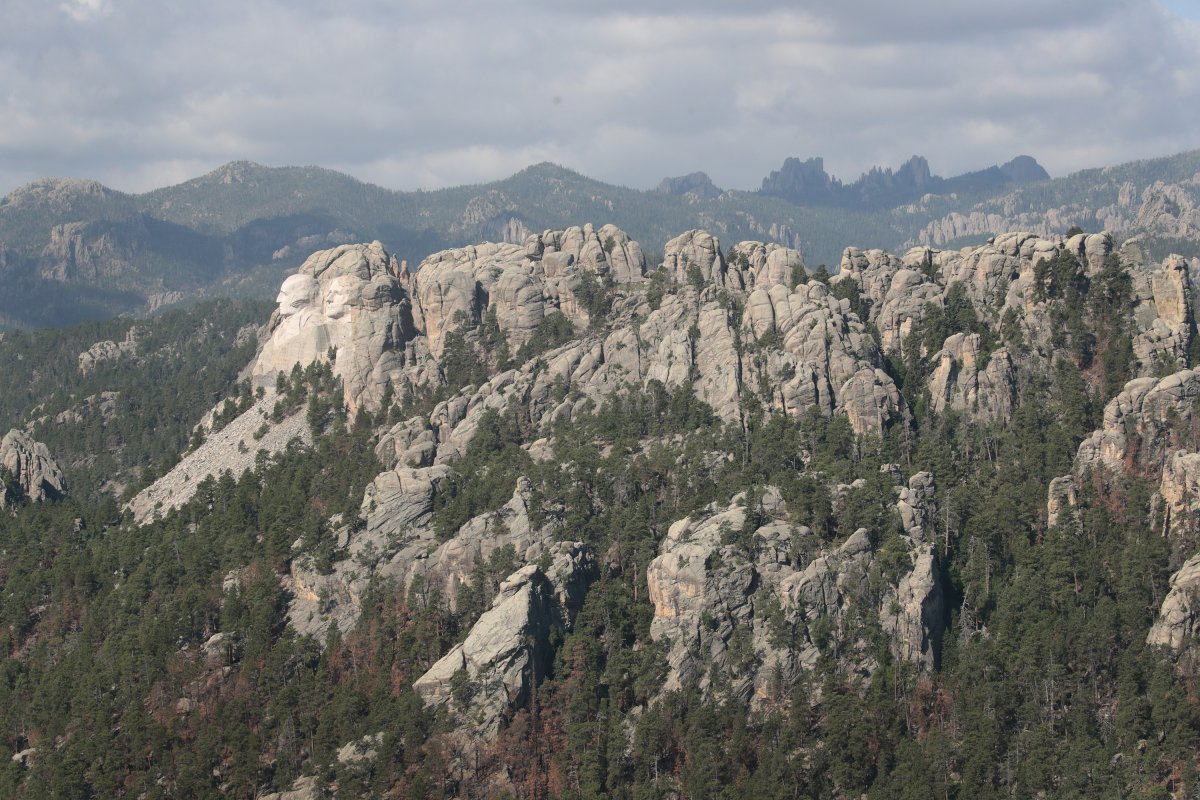"Land acknowledgements" are all the rage. For those who haven't been to a graduation or university lecture in Blue America, a "land acknowledgment" is the practice of starting an event with a statement that the land on which the event is taking place once belonged to particular groups of Native Americans. It is easy to dismiss these as ahistorical nonsense, laden with sentimentality. But there is another way to look at these statements that demonstrate American exceptionalism.
Start with the basics. All of human history has been the displacement of one people by another. No one has a claim on land except if they put it to productive use and are capable of defending it. In fact, land moving to a higher-valued use is the premise on which most wealth creation and human flourishing is based.
Moreover, once one starts acknowledging, there is no sensible place to stop. Nearly every plot of land on Earth is inhabited today by groups of people that displaced other people who lived there before. Which of the thousands of groups of humans that have once claimed the land that is now Poland should the current Poles "acknowledge?" In fact, why stop there—don't the Neanderthals who once lived there deserve a nod too?
In fact, choosing a specific group of people (and not others) to acknowledge is an act of hubris, reflecting the "colonial mindset" the acknowledgement is meant to distance us from. After all, the only Native Americans usually mentioned in these acknowledgements are those who inhabited the lands in question when settlers arrived.
In Chicago, land acknowledgements—at everything from university events to NHL games—mention the Potawatomi, because when "white" people arrived here, that is who they found. But native tribes engaged in constant conquest and displacement as well. The Potawatomi are no more the "original" or "true" owners of Chicago than the European settlers that displaced them.
There are differences, however, between the way native tribes and the United States handled the issue of displacement. The United States paid for many of the lands it took, then and now, and recognizes the semi-sovereignty of numerous tribes to this day.

Consider the case of the Lakota, one of the groups that make up the tribe known as the Sioux.
When the French arrived in the Great Lakes in the early 1600s, the Lakota lived in the area of present-day Michigan, Illinois, Wisconsin, and Minnesota. According to a new history by Pekka Hämäläinen, the Lakota were driven there from further east by the powerful Iroquois expanding west. Once settled, and driven by their own imperial ambitions, the Lakota expanded further west, displacing other tribes, making the land around the thousands of miles of the Missouri River their own. The new, vast Lakota homeland was built on violent conquest, as well as sophisticated politics and a remarkable ability to adapt.
Lakota expansion eventually brought them to the Black Hills of western South Dakota, which they declared their "sacred home." This was more than two centuries after Europeans arrived in North America. The land was not originally theirs, as one of their leaders acknowledged in treaty talks with the United States: "these lands once belonged to the Kiowas and the Crows, but we whipped these nations out of them, and in this we did what the white man do when they want the lands of the Indians."
The United States followed the Lakota conquest westward, making them allies, then enemies. Wars were fought. Treaties were made and broken. The two great powers of North America eventually came to terms on a division of the land that gave the Black Hills to the United States. The Lakota, who had displaced the Crows (who had probably displaced others), were now displaced by the United States.
Unlike the Lakota, who offered nothing to the nations they "whipped" out of the Black Hills, the U.S. opened its courts to the Lakota. In 1946, Congress created the Indian Claims Commission, which was empowered to hear Native American claims for compensation for lands taken. In 1980, the U.S. Supreme Court upheld a Sioux claim under the Fifth Amendment's "takings clause," awarding not just compensation but interest on it going back to 1877.
The Sioux have not claimed the money, despite suing to get it. It sits in the Treasury of the United States collecting interest, and is worth about $2 billion today. According to the general counsel of one of the Sioux tribes, "the Sioux tribes have always maintained that that confiscation was illegal and the tribes must have some of their ancestral lands returned to them." The Kiowas and the Crow could not be reached for comment.
The next time you hear a land acknowledgement, keep it in perspective. Take it as a reminder to be thankful that you live in a country that, while built on conquest, rose above the typical indifference of conquerors.
M. Todd Henderson is professor of law at the University of Chicago Law School.
The views expressed in this article are the writer's own.
Uncommon Knowledge
Newsweek is committed to challenging conventional wisdom and finding connections in the search for common ground.
Newsweek is committed to challenging conventional wisdom and finding connections in the search for common ground.
About the writer
To read how Newsweek uses AI as a newsroom tool, Click here.








